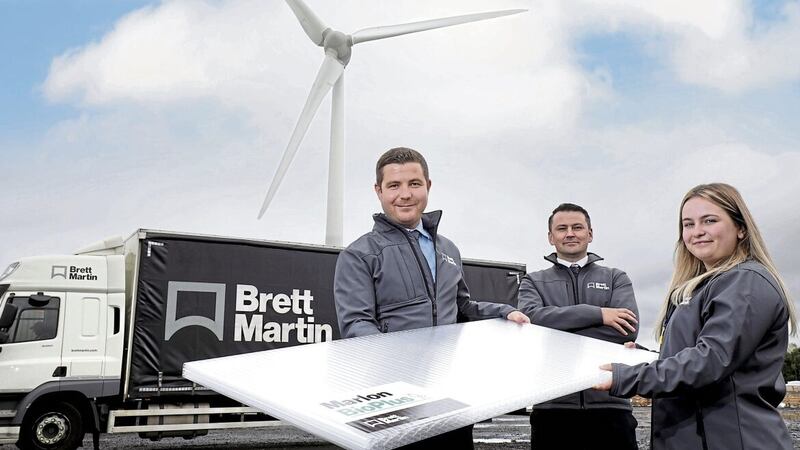A MALLUSK-based company is set to reduce the carbon footprint of buildings around the world with a new material based on used cooking oil.
Brett Martin, which has provided polycarbonate roofing for the likes of the Etihad and Old Trafford stadia as well as a wide range of commercial and industrial buildings, is launching a new plastic roofing product made from bio-circular materials recovered from the food industry.
Called Marlon BioPlus, the new sheet offers a major carbon footprint reduction by cutting the use of fossil-based material by 70 per cent. The raw material in the sheet is also produced with renewable energy, leading to an overall 84 per cent decrease in carbon emissions.
Brett Martin's Marlon polycarbonate sheets are used throughout the UK and in worldwide markets in a wide variety of projects including high profile sports stadiums such as Twickenham and in commercial and industrial buildings.
Employing more than 1,000 people and with sales of £220 million, Brett Martin (http://www.brettmartin.com/) is already one of Europe's largest plastic sheet producers for the construction industry, and the new range is expected to create strong demand from a construction market eager to reduce its environmental impact.
Director Paul Martin said: "The drive for sustainable, carbon neutral plastic materials is progressing well, and our launch of Marlon BioPlus is the latest milestone in our journey to that end.
"Our extensive investment in renewable energy at our Mallusk site is unique in our industry and an important part of our plan. We extrude the sheet using energy generated from our own wind turbine and dedicated solar farm at Mallusk."
He added: "This development of this new product reflects the newest technology in the plastic industry to introduce bio-based material.
"The process, known as mass-balancing, certifies the input of the material through the production system, similar to the way renewable energy enters the power grid. Importantly, the material is a recycled source and therefore the bio-based content does not compete with food production.
"And because the substitution occurs at the earliest stage of the resin production process, all the visual and mechanical properties of the finished sheet remain completely unchanged.
"So, we anticipate strong demand for the product which is soon to be available to the market globally and we will begin to see it being used in all kinds of buildings soon," he said.


